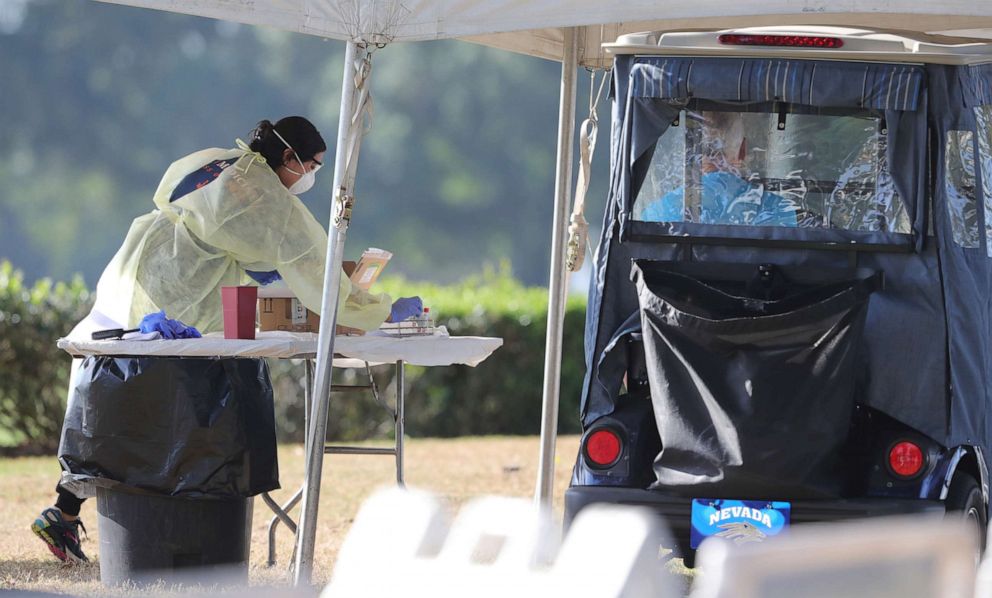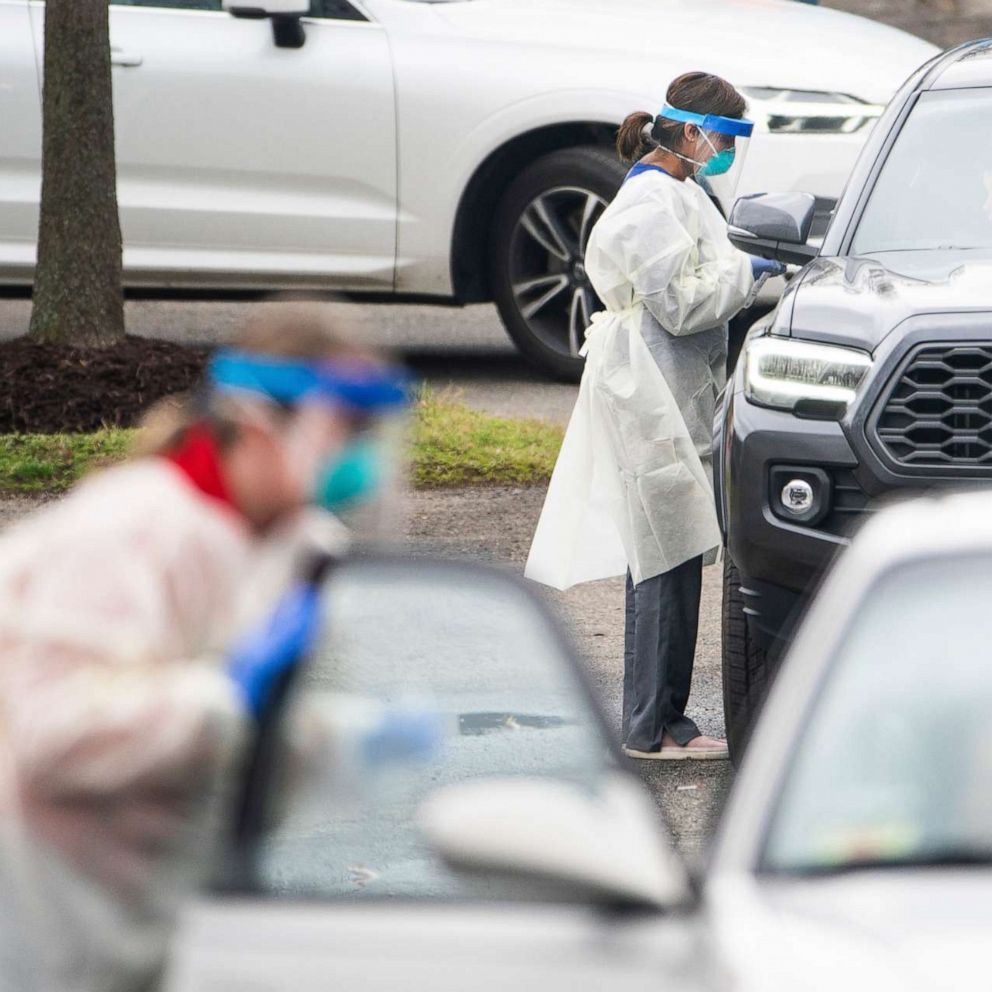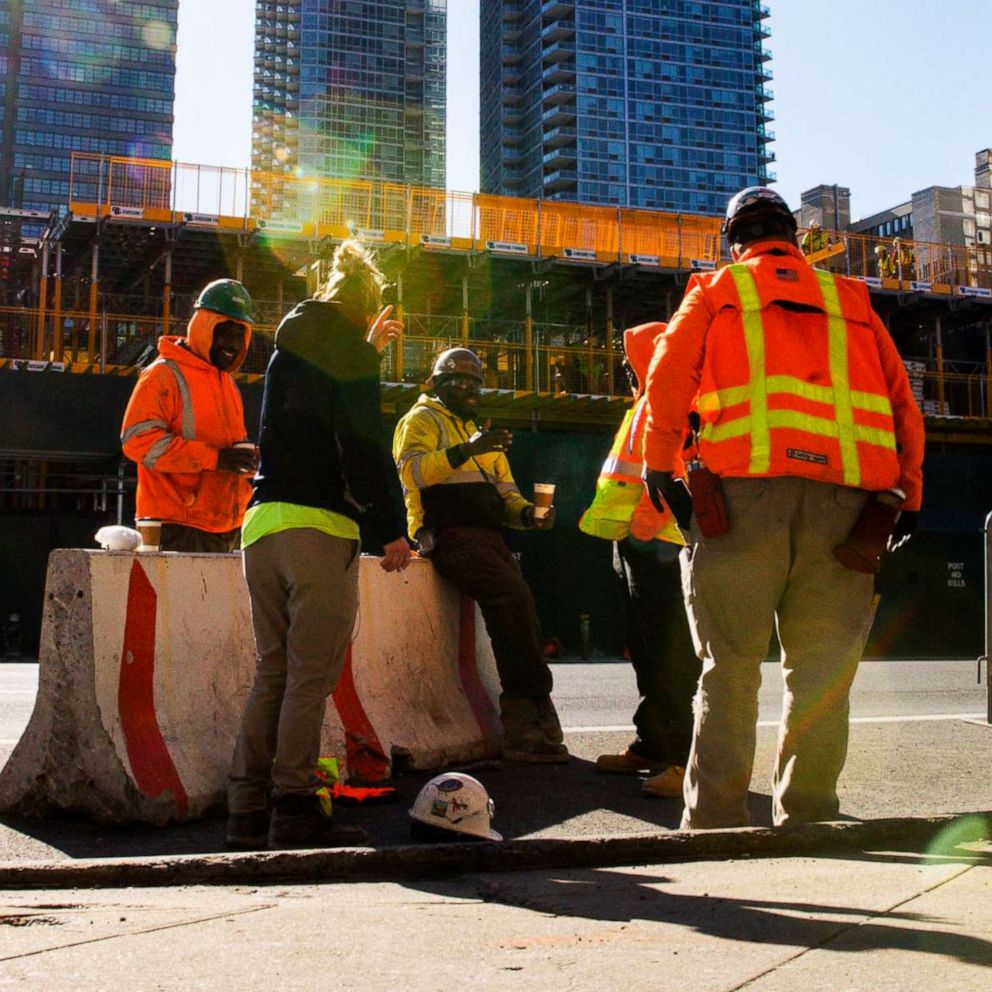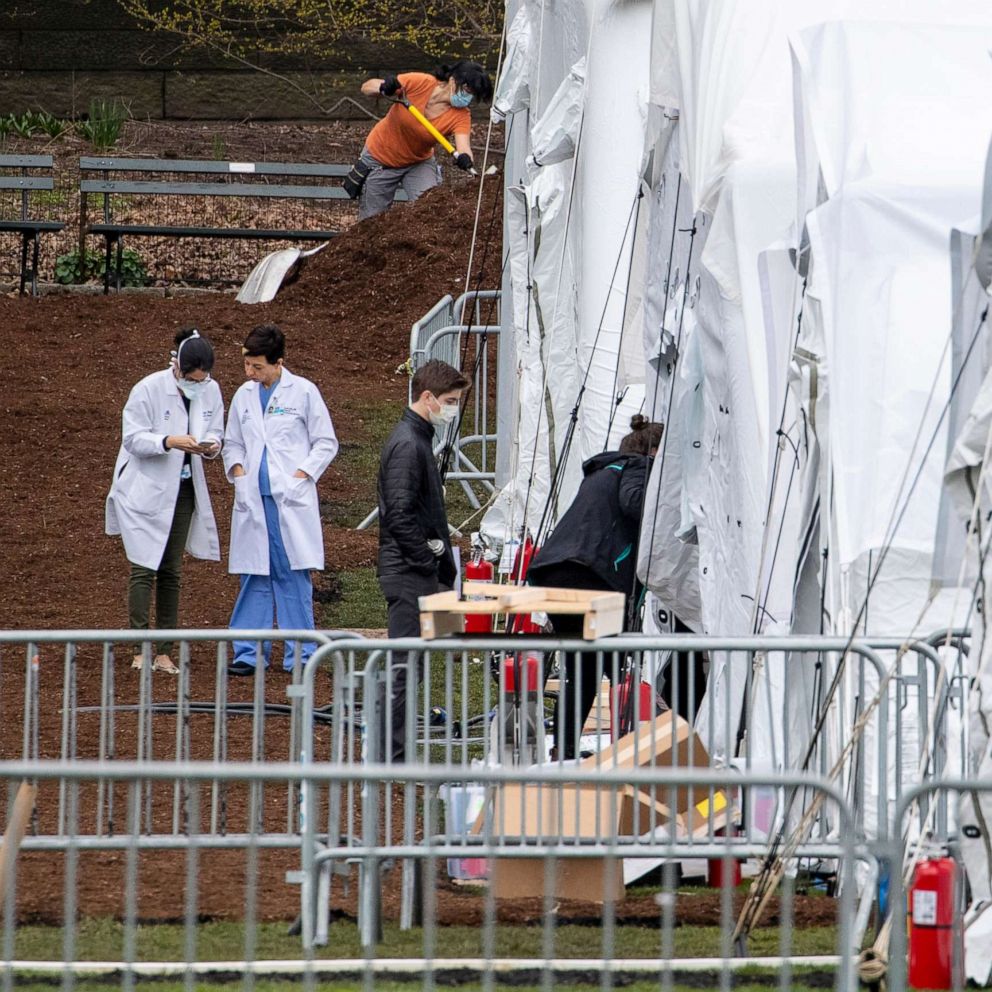As coronavirus patients surge, medical students rushed into practice to fight pandemic
PPE shortages, overwhelmed hospitals may delay their ability to join front lines
The United States health care system is mobilizing to triage a public health emergency that is rapidly taking members of its workforce out of the ranks.
Grim projections from the country's leading health officials over the weekend emphasized the toll the novel coronavirus could have on the U.S. healthcare workforce, one that is buckling under a surge in demand and an inadequate supply of protective gear that is endangering the lives of front-line responders.
At a White House coronavirus task force press briefing Sunday, Dr. Anthony Fauci said it is possible that 100,000 to 200,000 people in the U.S. will die from the novel coronavirus.
Amid an alarming rise in cases in California where hospitalizations have doubled and ICU admissions have tripled in recent days, Gov. Gavin Newsom launched an initiative Monday aimed at increasing the ranks of the state's health care workforce in advance of an expected surge in coronavirus patients.
"If you're a nursing school student, a medical school student, we need you," Gov. Newsom said at a press conference Monday.
The newly created California Health Corps will recruit health care providers, including medical students nearing completion of their studies, to address what the governor called the "human capital surge" that the state will need to ensure an adequate workforce is available to assist in the state's pandemic response.
Medical students nationwide, just months away from becoming resident doctors, are eager to alleviate the pressure on health care professionals by joining the fight.
"There’s a large group of resilient people out there who are ready to go on the front lines and help," said Lizzie Andrews, a fourth-year medical student at Texas A&M who will start her residency at NewYork-Presbyterian Brooklyn Methodist Hospital in June.
"We’ve been preparing for this for all four years and that’s what we want to do--we want to help people," Andrews said. "That’s why we got into medicine in the first place."
Starting residency amid a global pandemic is something most medical students never imagined doing. Less than two weeks ago, fourth-year students were matched to the hospital residency programs where they will begin their careers as doctors. According to the National Resident Match Program, the 2020 match was the program’s largest in its history with a record-high of 40,084 applications for 37,256 positions.
Although some states require residents to have training licenses, New York law allows students who have graduated medical school to manage patients without a medical license, as long as it occurs under the supervision of a licensed physician and as a part of an accredited residency program.
Some schools are offering early graduation
In response to a similar directive from Gov. Andrew Cuomo to add to New York's health care workforce, some New York medical schools announced last week they would allow fourth-year medical students to graduate early, in an effort to ease the burden the coronavirus has placed on the state's health care system. Columbia University Vagelos College of Physicians and Surgeons has offered its fourth-year medical students temporary employment at NewYork-Presbyterian Hospital until they depart for their respective residency programs, according to a letter sent to students and provided to ABC News.
But efforts to fast-track medical students to the front lines of the U.S. pandemic response are complicated by several factors, including inflexible state licensing requirements and a severe lack of personal protective equipment that is crippling the ability of existing first responders to do their jobs safely.
In Washington state, where the first U.S. coronavirus case was recorded in January, a spokesperson for the University of Washington School of Medicine told ABC News Monday the school has no plans to graduate its medical students early. The decision was in part due to the state medical board, which has not changed its licensing requirements to allow students to go into their residency training if they were to graduate early. The spokesperson also told ABC News the residency programs are currently overwhelmed and cannot handle the onboarding of new interns or residents and had also experienced issues related to a shortage of personal protective equipment.

In California, a spokesperson from Stanford University told ABC News Monday the school did not expect to adjust the date of graduation for medical students. The spokesperson also said Stanford Medicine did not have staffing shortages and was redeploying current staff to areas where they were most needed.
Elsewhere in the country, state governments and health officials are preparing for the surge in their own communities and facilitating the changes needed to increase the workforce with medical school graduates.
Amid an escalating situation in Illinois, Governor J.B. Pritzker has prepared for the surge in coronavirus patients with response plans that include options to deploy medical students. Last week top health experts, including the Surgeon General Dr. Jerome Adams, warned Chicago was one of the major U.S. cities identified as future hotspots.
"The governor and his administration are exploring every option at our disposal to ensure the safety and well-being of all Illinois residents during this crisis," Jose Sanchez Molina, the governor’s deputy press secretary, said in a statement to ABC News. "The administration is working closely with universities across the state and early graduation for medical students is an option we are looking into," Molina said.
In Massachusetts, the state worked with the deans of medical schools on early graduations to expand the "cadre of physicians" who can join the state's fight against COVID-19, the Secretary of Health and Human Services Marylou Sudders said during one of Gov. Charlie Baker's daily press conferences last week. According to Sudders, the state's Board of Registration of Medicine is prepared to provide medical school graduates with provisional 90-day limited licenses to practice medicine. Top Boston institutions, including Harvard Medical School, responded by announcing early graduation options for medical students.
In hard-hit southern California, at the University of California Los Angeles (UCLA) Dr. Clarence Braddock, the vice dean for education at the David Geffen School of Medicine, told ABC News Monday UCLA would offer early graduation to its medical students if they have met the requirements and are matched to a residency program that wants to start and hire them early.
"We’re going to need them," Braddock said in an interview with ABC News last week. "Maybe some places sooner than others, but we’re definitely going to need them."
He called the current situation surrounding the coronavirus pandemic unprecedented.
"I have been in medicine for close to 40 years and this is not like anything I’ve seen in my career."
Medical grad students face equipment shortages
While health experts acknowledge the assistance medical students can offer in the pandemic response, they remain divided on the extent of the role these soon-to-be doctors can play. Despite the willingness of medical students to join responders on the front lines, the critical shortage of personal protective equipment to safeguard them from infection has frustrated that process.
"In many ways, they are at their peak of medical knowledge," Dr. Humayun Chaudhry, the president of the Federation of State Medical Boards, told ABC News. "Many of them know the basic sort of physical diagnosis skills that they need, and they feel frustrated," Chaudhry said in the interview. "And I understand their frustration, but I think …we have to look out for their health as well."
Dr. Janis Orlowski, the chief health officer of the Association of American Medical Colleges (AAMC), said the organization was trying to respond to workforce and supply issues and make smart decisions about the involvement of medical students and resident physicians.
"We’re trying to expand the workforce and we’re trying to make sure that we keep the workforce safe so that they can continue to work," Orlowski told ABC News in an interview last Thursday.
She said younger doctors make more mistakes in using protective equipment and protective gowns, but that the AAMC would continue working on their involvement. Chaudry said he hoped the limited personal protective gear would be addressed.
"It would not be ethical, to be honest, to have thousands of medical students helping out in hospitals or in clinics or in county health departments without that equipment," he said.
Obstacles for foreign medical students
Another factor complicating the health care system's pandemic response is the thousands of foreign doctors set to come to the U.S. for residency programs in American hospitals. According to the Educational Commission for Foreign Medical Graduates, international medical graduates account for a quarter of the active physician workforce and stand to play a critical role in combatting COVID-19.
Their ability to contribute was in jeopardy after a March 18 announcement that the U.S. was suspending routine visa processing due to the coronavirus, which included the types of visas used for international medical graduates entering the U.S. for residency programs.
However, a new communication from the U.S. Department of State last Friday signaled the U.S. would resume processing J and H visa applications for medical professionals seeking to enter the U.S.
Despite the development, there are still significant obstacles for international medical graduates. Widespread international flight restrictions that may still be in place at the start of residency programs and embassy closures throughout the world are just some barriers they may encounter on the journey to the U.S. to begin residency programs.
In the event foreign doctors cannot travel to the U.S., hospitals will face real problems in meeting health care needs and combating the COVID-19 health care crisis, according to Dr. William W. Pinsky, the president and CEO of the Educational Commission for Foreign Medical Graduates.
"I think they’re going to have to deploy people differently," Pinsky said in an interview with ABC News. "It’ll be a real issue."
Hospitals nationwide are preemptively addressing any potential complications, including those involving foreign doctors, which might delay adding physicians to their ranks. Henry Ford Hospital in Detroit is proactively addressing the issues facing international medical graduates by working to ensure that anybody who is on a visa is not assigned to a critical rotation for the first month to two months of the residency program, according to Dr. Kimberly Baker-Genaw, the director of medical education.
Hospitals innovate to onboard residents
Although Henry Ford Hospital intends to welcome first-year residents in person, Baker-Genaw told ABC News the hospital is trying to be proactive in its onboarding plans.
"We have already implemented a plan to orient the group virtually and are working along a pretty rapid path to put that in place," Baker-Genaw said.
A spokesperson for the Inova hospital system, which maintains a vast integrated network of hospitals, primary care and emergency centers in Virginia told ABC News that Inova was considering conducting resident orientation via Zoom remote conferencing services.
Braddock also told ABC News the UCLA hospital system was reviewing the workflow of onboarding new residents and actively exploring whether some of that process and training could be pushed to remote methods.
"We believe that the idea of accelerating the onboarding of residents is one of many effective strategies to supplement the workforce quickly and efficiently," Braddock said.
For medical students on the cusp of becoming resident doctors, the unprecedented health emergency of the coronavirus pandemic has brought an expedited end to their education and unconventional start to their professional careers.
"We are in uncharted territory," Emily Gonzalez, a fourth-year medical student who will begin her residency at Baylor University Medical Center in Dallas, told ABC News.
"It’s scary, but fourth-year medical students are ready to get involved. We are living history right now."
ABC News' Matthew Fuhrman contributed to this report.
What to know about coronavirus:
- How it started and how to protect yourself: Coronavirus explained
- What to do if you have symptoms: Coronavirus symptoms
- Tracking the spread in the U.S. and worldwide: Coronavirus map







